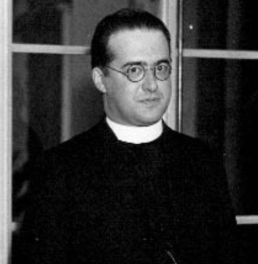We support our Publishers and Content Creators. You can view this story on their website by CLICKING HERE.
The upcoming presidential election will determine the next leader of the nation and representative of America to the world. Election Day offers the prospect for a new voice and a new option. The American Solidarity Party fits that description. Its principles and public policy are in quest for the common good. Its political approach, emphasizing civility and respect, is directed toward common ground and healing of divisions.
 American voters will go to the polls November 5 to elect the 47th President of the United States. Some claim the country is facing the most important election in its history. Others go so far as to assert democracy is at stake and the nation is at an existential crossroads.
American voters will go to the polls November 5 to elect the 47th President of the United States. Some claim the country is facing the most important election in its history. Others go so far as to assert democracy is at stake and the nation is at an existential crossroads.
Anxiety clearly is rising as Election Day approaches, but it has been climbing during the course of the last several presidential elections. Though the “crisis of epic proportions” rhetoric persists, voters can overcome it through not just their choice of a new president but their preference for a new political system as well.
The next president will be tasked with leading the United States into its 250th year of existence, much of that time as a nation of purpose and positive influence on the global stage. Many of the qualities that have made America a model for the world still exist. It is a nation of great ideals despite a history of struggles and shortcomings. Lamentably though, it is currently a country divided, largely by its politics.
The two major political parties are locked in a tight race for control of federal leadership, and their respective candidates are not earning high marks for popularity. The power struggle is creating emotional upheaval. Among the candidates, and increasingly the voters, sensibility and civility are relegated to the back seat.
Fear and hatred seem to be the predominant sentiments motivating the electorate. Whether worried about the future under one candidate or filled with loathing for the other, people are prompted to vote defensively, casting a ballot for one essentially to prevent the other from being elected. So concerned are they that one of these two will come to power, they imagine only harm resulting.
Not only do these emotions contribute to the divisiveness campaign, they make voters more engrossed in the election’s outcome and what it portends for the next four years. It seems more now than since the Civil War, the population of the United States is exhibiting a deep split about its future direction. The prospects of emerging a more united and resolute nation appear bleak.
How can America change direction? Is there a path? Bob Dylan perhaps said it best: “You need something to open up a new door, to show you something you seen before but overlooked a hundred times or more.”
Though a modest factor through American history, the present political climate makes it more indispensable: a third party.
A third party introduces marginalized voices into the public square. It challenges the status quo by showing the political establishment the values it has failed to represent. A third party invites new ideas and new people into the realm of public policy making.
Some will contend that a third party vote is wasted. They’ll argue that a third party candidate cannot win, so support is pointless and in vain. Others will classify a third party candidate as a spoiler, preventing another candidate from being elected. These sentiments are common, and very convenient, for voters whose preference for one the two major parties is in many cases predicated on contempt or dread of the other.
The only wasted vote is the one not cast. In this election, with two polarizing major party presidential candidates, skipping the polls is a strong consideration for many. Third (or minor) parties provide them options. In fact, a third party vote is measurable. It doesn’t take a sophisticated pollster poring over election data to determine that a third party vote is a rejection of the status quo, a refusal to accept the major parties’ offers.
The purpose of politics is to be an influence, to introduce ideas and principles that appeal to voters. The benefit of appealing to enough voters is winning an election and earning the right to represent them in government. Third parties do just this, but the major parties, who control government and make election rules, prefer to maintain a binary. The result is usually a choice between the lesser of two evils and always a perpetuation of the two-party paradigm.
Still more, a third party introduces opportunity for collaboration and consensus in the political forum. A third party shifts focus from special interests and political donors and elites. A third party proposes values from a new swath of the electorate.
The American Solidarity Party fits that description. Its principles and public policy are in quest for the common good. Its political approach, emphasizing civility and respect, is directed toward common ground and healing of divisions.
The United States, as President Lincoln noted in his Gettysburg Address, is a government of the people, by the people, and for the people. The latter part of that description is often forgotten today. The public sector belongs to the people, and people – the common good – should be its focus.
This is what sets apart the American Solidarity Party. By its foundations, it is people-centered. The ASP platform cannot be pinpointed on the political spectrum. It is not progressive, or heavily left-leaning. It is not conservative, or skewed to the right. It is not centrist, or neutral and bland.
The ASP has policy positions that may be plotted on the spectrum, but they are not collectively red or blue. They derive from both sides, but are remarkably harmonious and complementary, all grounded in a respect for human life and dignity.
The ASP presidential ticket stands for positive change. Its platform offers a fresh public policy approach. Its methods propose a change from polemical ideologies and hyperpartisanship that test voters’ patience and sanity during an election year.
The upcoming presidential election will determine the next leader of the nation and representative of America to the world. Election Day offers the prospect for a new voice and a new option. November 5 offers an opportunity to set aside a long-standing entrenchment in the two-party system. U.S. voters will have an option that comes just once every four years to reject the tribal tendencies and blind support for a polarized political ideology, characterized by a two-party system. They will have an opportunity to reject the lesser of two evils in favor of a greater good.
Peter Sonski is the 2024 presidential candidate of the American Solidarity Party.
The Imaginative Conservative applies the principle of appreciation to the discussion of culture and politics—we approach dialogue with magnanimity rather than with mere civility. Will you help us remain a refreshing oasis in the increasingly contentious arena of modern discourse? Please consider donating now.
The featured image is courtesy of Pixabay.
Share This Story, Choose Your Platform!
Go to Top

 Conservative
Conservative  Search
Search Trending
Trending Current News
Current News 






